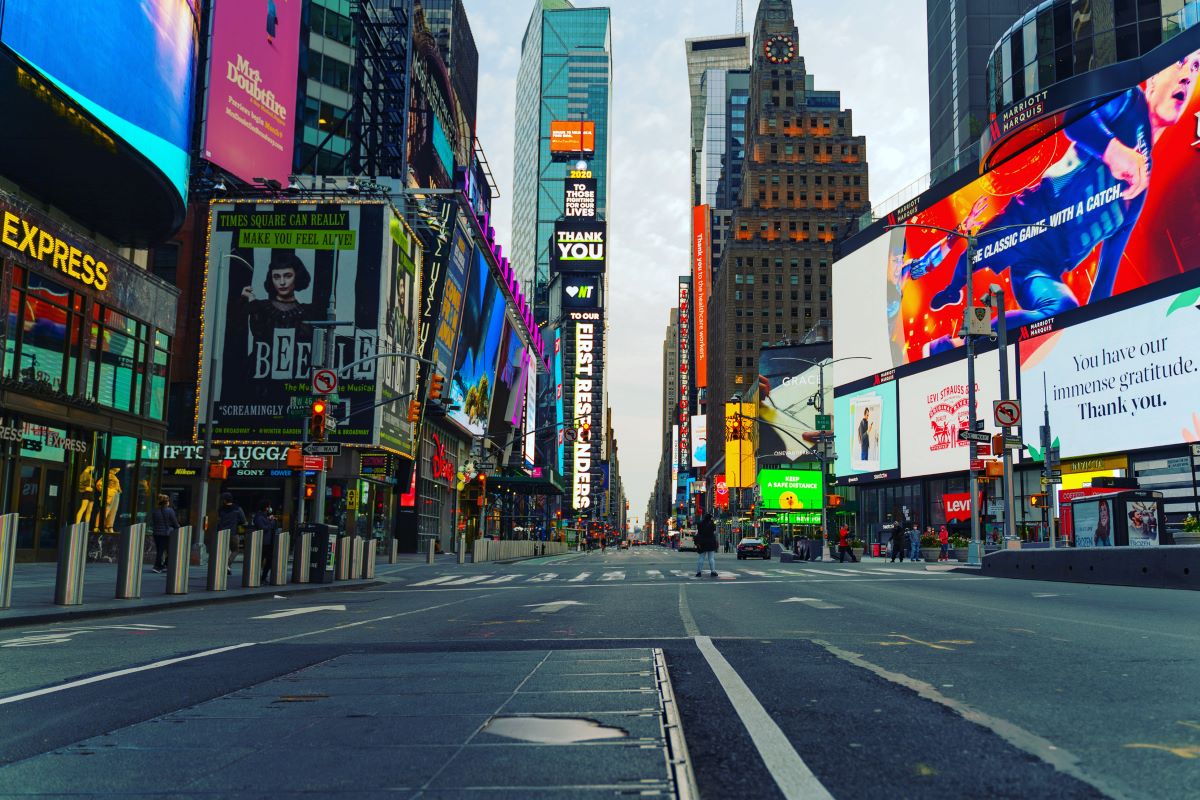Turns Out We Haven’t Learned Anything as a Society
Whether on our smartphones, in the workplace, or at home, there was so much anticipation for things to return to normal after COVID-19 first appeared nearly three years ago. Of course, this day never arrived, at least not for me or in the way we’d hoped.
The truth is, in so many ways, we can never return to life before COVID. That was a different time and a different life. So much has happened to change our world since then.
When COVID first arrived in New York City, it took so many lives in my community and much more. With it returned a genuine, rational fear of homelessness. When COVID happened, I had only been housed for a couple of years, and in that short time, I saw my life change—flipped upside down.
I went from sleeping on the floor of a crowded homeless shelter to … this.
At times, it still doesn’t feel real – any of it. An entirely new life emerged from this chaotic world in such a short period.
The thing is, that moment was fleeting. And every moment since then. I haven’t known that feeling of security, safety, or predictably, since. When COVID came, those few crumbs of security I clung to slipped through my feelings. Suddenly, it felt as if I’d snapped back to reality, remembering that homelessness could happen to me again, just like it did then.
As COVID progressed, things were scary. People were dying. For a time, I remember receiving emails from the Human Resources department almost daily, announcing deaths and funeral details. People were losing their jobs or risking their lives, continuing to go to work every day.
Most of us quickly began working from home. For those who couldn’t, unemployment was accessible, and all recipients saw an increase in their unemployment checks thanks to the Pandemic Emergency Unemployment Compensation Program, Extended Benefits Program, and Pandemic Unemployment Assistance Programs.
Although it wasn’t enough, we did receive stimulus checks. Most importantly, eviction moratoriums prevented a massive influx in homelessness, keeping some housed people from becoming homeless overnight.
But it didn’t last.
It’s been nearly two years since pandemic-related welfare programs have dried up.
The few stimulus checks weren’t enough then, and still not enough now. In fact, two years after pandemic aid ended, homelessness in cities and states across the U.S. is on the rise:
“Roughly 421,400 people were homeless in the U.S. last year, and 127,750 of them were chronically homeless, meaning they didn’t have a place to stay for a year or more. Homelessness rates have been climbing nationally by about 6% every year since 2017. The increase in the number of people without a place to live comes amid soaring housing costs and rising prices for essentials like food and transportation.”
Homeless numbers cited above are a low estimate, at best. Writer Cynthia Griffith shares that millions of Americans are unhoused each year. 2.5 million of them are schoolchildren. 3.5 million more are between the ages of 18 and 25.
And here’s the thing – COVID isn’t over. I’m still suffering long-COVID symptoms right now. My lungs haven’t recovered since the last time I contracted COVID earlier this year. I was laid off in July for this exact reason. The problem is, this time, the unemployment insurance payments aren’t enough, and the cost of rent, food, and transportation continues to rise.
On the other side of the continent, in California, homelessness continues to rise. The homeless problem in L.A. has spread, spilling over into San Diego:
“An estimated 171,000 Californians — or 30% of all unsheltered people in the U.S. — are homeless. San Diego County alone saw its homeless count rise to 10,264 — a 22% increase from last year. A University of California, San Francisco study found that high housing costs and low income are fueling the homeless crisis in the Golden State.”
I remember when COVID came, one of the first thoughts I had was, “My homeless friends are going to die.” Some did, but a lot did not.
They didn’t die because, for the first time, they had access to hotels and motels for an extended period. They suddenly had shelter for the first time. And that only happened because of COVID.
My poor friends, who were usually struggling, barely making it to their next paycheck, suddenly had access to enough food and enough cash to survive, thanks to the increase in unemployment benefits and food stamps. People were dying all around them, and they were sick and afraid for their own lives, but suddenly, they had their basic needs met.
I thought, maybe, just maybe, collectively, we’d learn. Things may change, finally.
We did not learn. What did happen is a lot of people died, and a lot of people probably didn’t need to die. I say things never went back to normal, but maybe for some, it did.
Homeless people are back on the street. My poor friends are hungry again.











